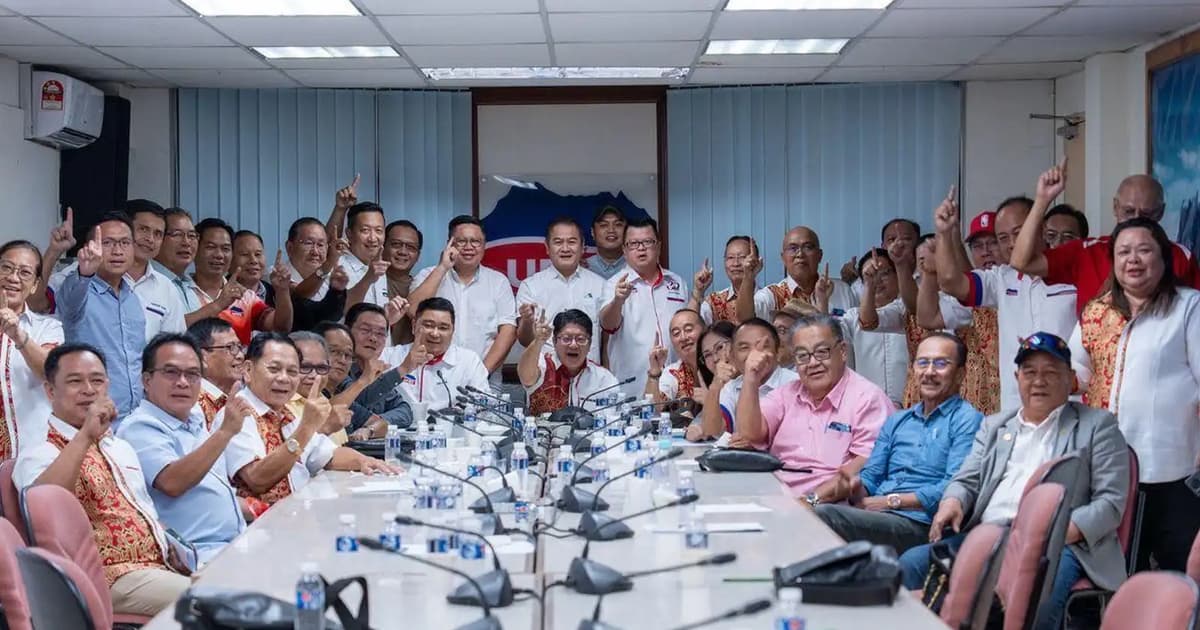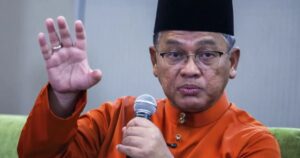
An analyst has dismissed Upko’s exit from Pakatan Harapan (PH) as a “political stunt” aimed at attracting voter support ahead of the Sabah state election.
Universiti Malaya’s Awang Azman Pawi said Upko’s decision to quit PH was prompted by dissatisfaction with the coalition’s seat allocations for the state election.
On Sunday, PH chairman Anwar Ibrahim announced that the coalition would contest 23 of the 73 seats up for grabs, with PKR set to contest 10, DAP seven, and Amanah one, leaving Upko with only five seats.
Although PH leaders said Upko was free to contest additional seats, Awang Azman said the party’s concerns centred on its chances of winning.
“The hidden motive behind Upko leaving PH is that the number of seats allocated to them was not as many as they had wanted to contest,” he said.
Awang Azman said the party also wanted to be allowed to contest constituencies where it had a real chance of winning, but feared it “would continue to be allocated Grade D (low-tier) or less winnable seats”.
Upko announced its withdrawal from PH following a special Supreme Council meeting yesterday, with party secretary-general Nelson Angang saying the decision was made after considering the sentiment among Sabahans for local parties to join forces.
Nelson pointed to unresolved differences with PH component parties over Sabah’s entitlement to 40% of the federal revenue earned in the state, the demand for one-third of parliamentary seats for Sabah and Sarawak, and the failure to grant administrative autonomy to Sabah PH.
Last Saturday, Upko president Ewon Benedick announced his resignation as entrepreneur development and cooperatives minister, citing disagreement with the stance taken by the Attorney-General’s Chambers (AGC) in the recent court case over the revenue entitlement dispute.
The Kota Kinabalu High Court ruled on Oct 17 that the federal government had acted unlawfully by failing to honour Sabah’s 40% share of net federal revenue for nearly five decades.
Ewon said the AGC’s position ignored the historical basis of Malaysia’s formation and made it “awkward” for him to remain in the Cabinet while holding an opposing view.
A political insider, speaking to FMT on condition of anonymity, cast doubt on Upko’s position on the matter, saying the issue had been raised several times in discussions before without triggering any threat of withdrawal.
He said Anwar, the prime minister, had indicated that he was personally inclined not to appeal the High Court’s ruling, but that a final decision could only be made after consulting the entire Cabinet at today’s special meeting.
“If the 40% revenue sharing was the real reason, Upko could have continued discussions within PH and negotiated its position,” said the source.
“Leaving the coalition entirely seems more about contesting the right seats and increasing its chances in winnable constituencies.”
The insider also drew parallels with Parti Solidariti Tanah Airku’s (STAR) recent exit from Gabungan Rakyat Sabah (GRS), noting that seat allocation and political positioning played a significant role in that decision as well.
He said STAR’s move was also seen by many as a tactical attempt to strengthen its bargaining power ahead of the state election, rather than a principled stand on policy issues.
“Just like Upko, STAR’s exit highlights how Sabah parties are willing to shift alliances to secure more favourable seats and better prospects in winnable constituencies,” the source said.
GRS secretary-general Masidi Manjun previously said STAR and Sabah Progressive Party, which also left GRS last month, had insisted on contesting under their respective banners in the state election, particularly in fielding candidates against PH.
Masidi said STAR and SAPP did not want to be “tied down” by the seat distribution finalised between GRS and PH, despite GRS chairman Hajiji Noor issuing a reminder that all GRS components had to respect its alliance with PH.
STAR president Jeffrey Kitingan had said that his party would pull out of GRS if it went ahead with its electoral pact with PH, adding that this stance was based on grassroots sentiments.






